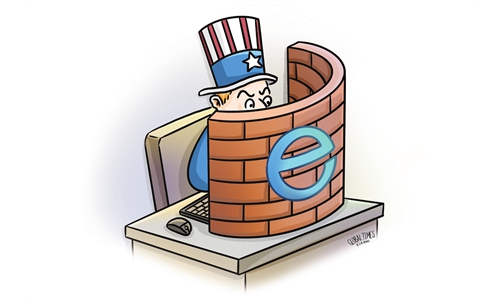China sees rapid IOT-led transformation, with 2.3 billion devices to be connected at the year-end: experts

Internet of Things Photo: IC
China will have 2.3 billion Internet of Things (IoT) devices by the end of 2023, up 30 percent year-on-year. The country is now leading the development of IoT with advanced Internet infrastructure and innovative applications.Announced on Monday at the World Internet of Things convention in Beijing, China has rolled out over 3.2 million 5G base stations, while the value of its digital economy exceeds 60 trillion yuan ($8.41 trillion) in 2023, up 25 percent year-on-year.
China maintains a leading position in IoT, in terms of IoT application and manufacturing, considering the country's vast user base and huge manufacturing capacity and capability, making the country a global leader in IoT development, Liu Dingding, a Beijing-based tech analyst, told the Global Times on Tuesday.
IoT is based on the concept of ubiquitous internet connection. By connecting everything with network-hooked cameras, sensors and other smart devices, IoT makes devices more accessible and easier to use. The application of IoT lands in both industrial and civil sector, creating the ideas of smart home and smart factory, Liu said.
Several Chinese companies are leading the development of IoT, including Huawei, Haier, Lenovo and Xiaomi. From smart speakers equipped with AI voice assistants, smart appliances to fully automated smart factories, they are at the forefront of the IoT transformation, Liu said.
Chinese companies are leading IoT applications too, which have developed many advanced use scenarios, though they are still catching up on chips and operating systems development, Liu noted.
In this increasingly interconnected world, IoT is a testament to the influence of digital technologies that are reshaping industries and driving global socio-economic transformation, the United Nations Secretary-General António Guterres was quoted as saying earlier.
The wave of digital economy supported by IoT is arriving, which will greatly change the world's socio-economic evolution, said He Xuming, Chairman of the Executive Committee of WIOTC. It is expected that, by 2030, the number of global IoT connections will exceed 80 billion, and the annual value of the global IoT economy is expected to exceed $40 trillion, He said.
China has made great efforts to develop its Internet industry and digital economy in recent years, as the country has the world's largest Internet user mass and a well-developed Internet infrastructure.
On November 13, Tsinghua University announced the next-generation ultra-high-speed backbone network with 1.2Tb/s capacity, and they have tested the network and put it into use. The network was designed to provide high-speed Internet access for China's 1.079 billion Internet users, connecting three major cities Beijing, Wuhan, and Guangzhou.
Global Times



